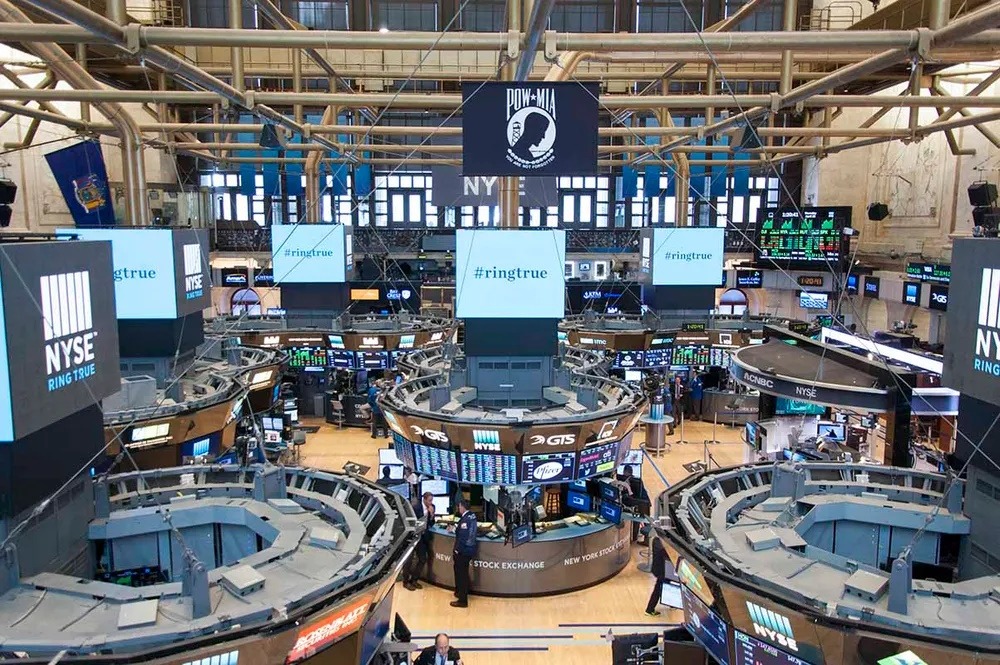
DOW Futures indicate a positive trajectory, as market participants remain attentive to the prolonged U.S. government shutdown, which has resulted in the postponement of critical official data that is expected to influence the forthcoming Federal Reserve interest rate decision. A senior official from the White House cautions that widespread federal layoffs may be imminent, given the lack of progress in negotiations between Republicans and Democrats to restore government operations. In other developments, Constellation Brands, a prominent player in the alcoholic beverage sector, is set to release its most recent quarterly earnings. Meanwhile, the ruling party in Japan has selected hardline conservative Sanae Takaichi as its forthcoming leader.
DOW Futures rose on Monday, as investors monitored the ongoing federal shutdown in Washington and anticipated both a Federal Reserve interest rate decision and the onset of third-quarter earnings season later this month. As of 03:10, the Dow futures contract experienced an increase of 86 points, reflecting a rise of 0.2%. Meanwhile, S&P 500 futures saw a gain of 20 points, translating to a 0.3% uptick, and Nasdaq 100 futures advanced by 103 points, corresponding to a 0.4% increase. On Friday, the principal averages experienced significant volatility, as the benchmark S&P 500 and the blue-chip Dow Jones Industrial Average achieved record closing highs, whereas the Nasdaq Composite declined by 0.3%. The tech-heavy index faced pressure due to a decline in shares of chip equipment manufacturer Applied Materials, which projected a $600 million impact on its fiscal 2026 revenue last week.
The ongoing partial shutdown of the U.S. government has resulted in the postponement of critical economic indicators, notably the essential nonfarm payrolls report. The recent delays have resulted in increased examination of private-label economic data in recent days. Observers of private employment and business activity have indicated “darkening storm clouds” and heightened inflation on the horizon, according to analysts. The lack of official data has gained significance as the Federal Reserve prepares to announce a new interest rate decision in October. In the previous month, the central bank reduced interest rates to support a weakening labor market, though this action carries the potential risk of rekindling inflationary pressures. In the absence of government statistics, market participants continue to expect that the central bank will implement additional reductions in borrowing costs at its forthcoming policy meeting. The prolonged shutdown continues, characterized by a stalemate between Republicans and Democrats regarding healthcare assurances. On Sunday, a senior official from the White House cautioned that significant layoffs of federal employees will commence if President Donald Trump concludes that negotiations with congressional Democrats to resolve the shutdown are “absolutely going nowhere.”
Constellation Brands is set to release its August quarter earnings following the market’s close on Monday. The alcoholic beverage manufacturer fell short of both sales and income projections in the previous quarter. Similar to numerous competitors, Constellation has been contending with the dual challenges posed by increasing tariffs on aluminum and overarching economic uncertainty, which has prompted certain consumers to limit their expenditures on beers and wines. Meanwhile, a comprehensive crackdown on immigration was identified as a potential factor contributing to a notable decline in beer consumption, especially among Hispanic consumers. These trends have posed a risk of exacerbating a demand landscape for the industry that was already lackluster.
Japanese stocks outperformed other Asian markets on Monday, as the Nikkei surged to unprecedented levels following fiscal dove Sanae Takaichi’s election victory over the weekend, which heightened expectations for increased fiscal spending and stimulus from the Japanese government. Takaichi secured leadership of the LDP in a run-off election conducted over the weekend, positioning herself to potentially become Japan’s first female prime minister. A parliamentary session regarding the issue is scheduled to take place in mid-October. Takaichi was regarded as the most dovish among the five candidates vying for leadership of the Liberal Democratic Party. She advocates for increased fiscal spending and tax relief to support what she perceives as a vulnerable Japanese economy, and it is anticipated that she will dissuade the Bank of Japan from implementing further interest rate hikes.
Oil prices experienced a significant increase on Monday, recovering from substantial declines observed in the previous week. This uptick followed the decision by the Organization of the Petroleum Exporting Countries and its allies to implement a smaller-than-anticipated output increase for November, which alleviated some of the market’s concerns regarding a potential global supply surplus. During its meeting on Sunday, the producer alliance, referred to as OPEC+, announced an increase in production by 137,000 barrels per day (bpd) for November, consistent with the increment sanctioned for October. The increase fell significantly short of the anticipated up to 500,000 bpd, a possibility that had contributed to last week’s sell-off. The decision alleviated concerns among traders who were apprehensive that an influx of new barrels would surpass the already delicate demand. OPEC+, having already increased supply by over 2.7 million bpd this year, is methodically reversing the unprecedented cuts implemented during the pandemic.
